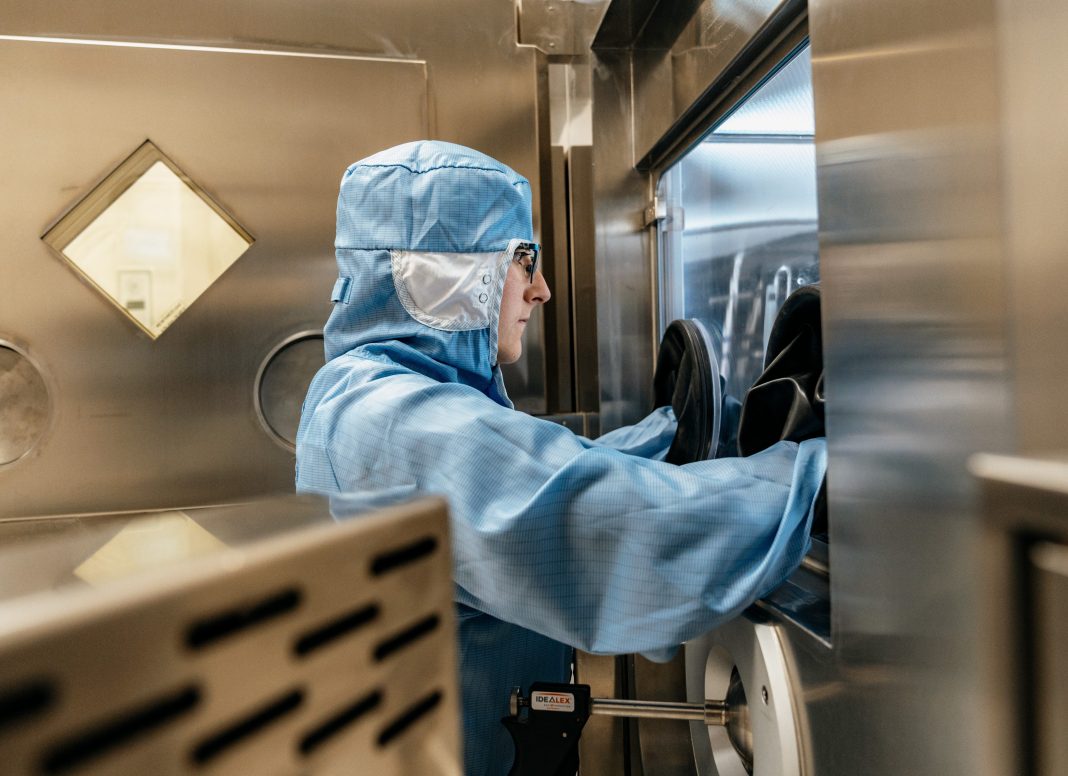Research and treatment for cancer, dementia and heart disease is set to take a huge step forward after the long-awaited handover of a £9m molecular imaging facility at Castle Hill Hospital in East Yorkshire.
At a ceremony to mark the occasion Professor Pat Price, an internationally renowned expert in cancer research, said the significance of the new molecular imaging research centre (MIRC) is underlined by data which shows more must be done to develop a much-needed national cancer recovery plan for the UK.
Prof Price added: “What is happening in Hull with the new MIRC and the Jack Brignall Centre is fantastic but now we need this push in terms of fundraising to show people what we can do. We need more capacity in diagnostic imaging otherwise cancer patients in the area are just going to have to wait longer. This will save lives.”
Prof Nick Stafford, founder and chair of the Daisy Appeal, said: “We currently carry out 4,500 scans every year in the Jack Brignall Centre but the scanner is at capacity. We are looking to upgrade it to a digital device capable of getting through 7,500 scans per year, but new technology does not come cheap.”
This new research centre complements the existing PET CT scanning centre which has been operating for the last nine years. There are ongoing plans for further development to improve medical services in Hull and the charity is looking to secure new funding for the digital scanner at a cost of approximately £2.8m within the next year.
Prof Stafford, a former professor of head and neck surgery, founded the Daisy Appeal in 2000. He remains chair of the charity which created a partnership between the Hull University Teaching Hospitals NHS Trust and the University of Hull. Milestones include the opening of the £8m Daisy Appeal Medical Research Centre in 2008 and the £4.5m Jack Brignall PET-CT Scanning Centre in 2014. To date £23m has been raised by the charity.
Equipped with its own cyclotron, the MIRC will make its own radiotracers which in the past have had to be bought in from manufacturers elsewhere – a journey of an hour or more for products which have a short half-life. When the new facility is up and running the radiotracers will be produced on site and delivered directly to the Jack Brignall Centre for immediate use in scans to detect cancers, dementia and heart disease.
Work on the MIRC commenced in 2018 with completion due in 2021 but construction, complications and equipment delays caused by the impact of Covid have pushed the project back. Having taken delivery of the facility, Prof Stafford said work will now begin on the commissioning and licensing procedures, with radiotracer production on course to start in the next two months and the cyclotron operational in about six months.
He said: “We will be able to manufacture a variety of clinically relevant radiotracers not currently available to patients in the north of England and, as the only facility of its kind between Cambridge and Edinburgh, we aim to become a referral centre for specialised PET imaging.
“Clinical scanning activity in the UK is predicted to rise 12 per cent year on year for the next decade and the industry partners we work with are gearing up to meet that. GE, who supplied our cyclotron have predicted an increase in sales for radiotracers and radiotherapeutics in the United States from $1.17bn in 2020 to $24.9bn by 2031. I’d like our facility to have a share of the UK element of this market.”
Annual running costs for the MIRC are £700,000 and the charity will continue to pursue other revenue opportunities from grants, corporate and personal donations and fundraising activities in the community.
The NHS review commissioned by the new government and published by Lord Darzi, reported that the UK has appreciably higher cancer mortality rates than other countries, with no progress whatsoever made in diagnosing cancer at stage one and two between 2013 and 2021.
Prof Price, chair of Radiotherapy UK, Professor at Imperial College London and a clinical oncology consultant for 35 years, said: “The importance of the new facility is about dealing with the increased incidence of cancer. There will be a 30 per cent increase in the incidence of cancer by 2040, one in two people will get it and there is a big delay in terms of diagnostics.
“We need chemical science centres like this one that can develop the methodology for PET studies. Not many places in the UK can do that and Hull would not normally be up for this level of infrastructure but we have known Nick for a long time, he came to us with his vision for Hull and he did something really tough and really important.
“It’s complex clinical science, it’s ambitious and they have attracted some very good people who can go to the next level now in terms of international support. To really make the most of this they need to get some pilot data which will help them secure bigger grants and become a jewel in the crown for the UK.”



